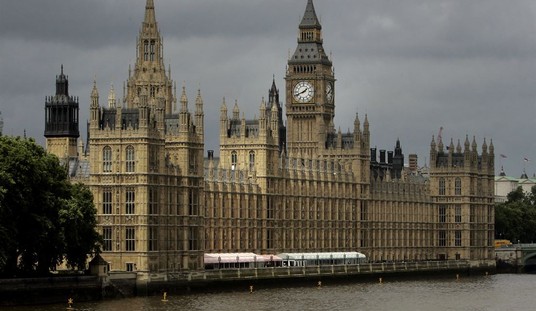Many GOP governors have been criticized for refusing to participate in the wild and ill-conceived expansion of the Medicaid program under Obamacare. There is good reason. While the expansion is underwritten by the Federal government in the near term, in the out years the states will be forced to either have their budgets consumed by Medicaid or take the politically difficult step of raising the eligibility requirements to pre-Obamacare levels. The left has glommed onto this yet another example of the heartless GOP wanting to kill off the poor. For instance, this from Talking Points Memo:
Republican governors refusing generous federal funding to expand Medicaid under Obamacare will leave over five million low-income Americans without basic health benefits, according to a new study by the Kaiser Family Foundation (KFF).
Since the Supreme Court ruled Obamacare’s Medicaid expansion to be optional last summer,just 25 states and the District of Columbia have proceeded to implement expansion. Another 22 states have refused, while a handful still remain undecided. Unfortunately, poor Americans living in states that aren’t expanding Medicaid likely won’t be able to afford health insurance at all.
There is, however, a conservative critique to be made of Medicaid that has nothing to do with money or politics. There is no evidence that it is better than no coverage at all.
The Kaiser Family Foundation, a left leaning non-profit, hitches its wagon to the Oregon Health Insurance Experiment, probably the best comparison of Medicaid outcomes:
Recently, the Oregon Health Insurance Experiment has provided uniquely powerful evidence about the impact of Medicaid coverage on uninsured adults. The evidence is compelling because the study is a randomized controlled trial (RCT), the gold standard in research design. Taking advantage of a lottery held in Oregon in 2008 to allocate a limited number of new Medicaid “slots” for low-income, uninsured nonelderly adults, a team of researchers gathered data on access, utilization, and clinical health measures for both the adults who gained Medicaid through the lottery and the adults who did not. Two rounds of findings have been published in the New England Journal of Medicine, which can be summarized, in part, as follows:
What follows are the top line summary statements. You can read the back-up discussion at the link.
- Medicaid increased access to care and health care use, and improved self-reported health.
- Medicaid improved adults’ mental health markedly; Medicaid’s impact on physical health remains inconclusive.
- Medicaid virtually eliminated catastrophic medical expenses.
While the recipients used more services, felt better about themselves, and avoided catastrophic medical expesnse, the single factor that was “inconclusive” was their actual health. I would also point out that it is doubtful that very many Medicaid eligible people were significantly hurt by “catastrophic medical expenses.” When you present at an emergency room the hospital is legally obligated to treat you. When it comes down to paying for food and shelter and paying the doctor, I think most of us know how we’d react in that situation. How this is net plus for the taxpayer, whether we provide payment to the hospital via Medicaid or if we provide it in compensation for unpaid medical services, escapes me. What KFF doesn’t mention was just how inconclusive the results were. From Nick Gillespie of Reason by way of The Daily Beast:
Evidence from the widely respected Oregon Health Insurance Experiment, which compared the health of Medicaid recipients to a control group, found “that Medicaid coverage generated no significant improvements in measured physical health outcomes in the first 2 years.” Such results are broadly consistent with findings that insurance status has little or no impact on longevity. In 2009, for instance, Columbia economist Frank Lichtenburg published a study looking at longevity in states between 1991 and 2004 and concluded that “growth in life expectancy was uncorrelated across states with health insurance coverage and education.”
If it were merely a wash, then perhaps this boondoggle would be good if for no other reason than assuaging liberal guilt. But that doesn’t appear to be the case. This from the Wall Street Journal:
Dozens of recent medical studies show that Medicaid patients suffer for it. In some cases, they’d do just as well without health insurance. Here’s a sampling of that research:
- Head and neck cancer: A 2010 study of 1,231 patients with cancer of the throat, published in the medical journal Cancer, found that Medicaid patients and people lacking any health insurance were both 50% more likely to die when compared with privately insured patients—even after adjusting for factors that influence cancer outcomes. Medicaid patients were 80% more likely than those with private insurance to have tumors that spread to at least one lymph node. Recent studies show similar outcomes for breast and colon cancer.
- Major surgical procedures: A 2010 study of 893,658 major surgical operations performed between 2003 to 2007, published in the Annals of Surgery, found that being on Medicaid was associated with the longest length of stay, the most total hospital costs, and the highest risk of death. Medicaid patients were almost twice as likely to die in the hospital than those with private insurance. By comparison, uninsured patients were about 25% less likely than those with Medicaid to have an “in-hospital death.” Another recent study found similar outcomes for Medicaid patients undergoing trauma surgery.
- Poor outcomes after heart procedures: A 2011 study of 13,573 patients, published in the American Journal of Cardiology, found that people with Medicaid who underwent coronary angioplasty (a procedure to open clogged heart arteries) were 59% more likely to have “major adverse cardiac events,” such as strokes and heart attacks, compared with privately insured patients. Medicaid patients were also more than twice as likely to have a major, subsequent heart attack after angioplasty as were patients who didn’t have any health insurance at all.
- Lung transplants: A 2011 study of 11,385 patients undergoing lung transplants for pulmonary diseases, published in the Journal of Heart and Lung Transplantation, found that Medicaid patients were 8.1% less likely to survive 10 years after the surgery than their privately insured and uninsured counterparts.
Medicaid insurance status was a significant, independent predictor of death after three years—even after controlling for other clinical factors that could increase someone’s risk of poor outcomes. In all of these studies, the researchers controlled for the socioeconomic and cultural factors that can negatively influence the health of poorer patients on Medicaid.
In short, Medicaid, like other feel-good programs such as Head Start, consumes resources, makes the recipient feel better, provides a lot of jobs for bureaucrats – both in and out of government, and produces jack.
Instead of folding like a cheap suit, in the case of Ohio Governor John Kasich, GOP governors should make the argument that Medicaid expansion is actually harmful to the people it purports to serve while increasing costs and stress on the health care system.













Join the conversation as a VIP Member